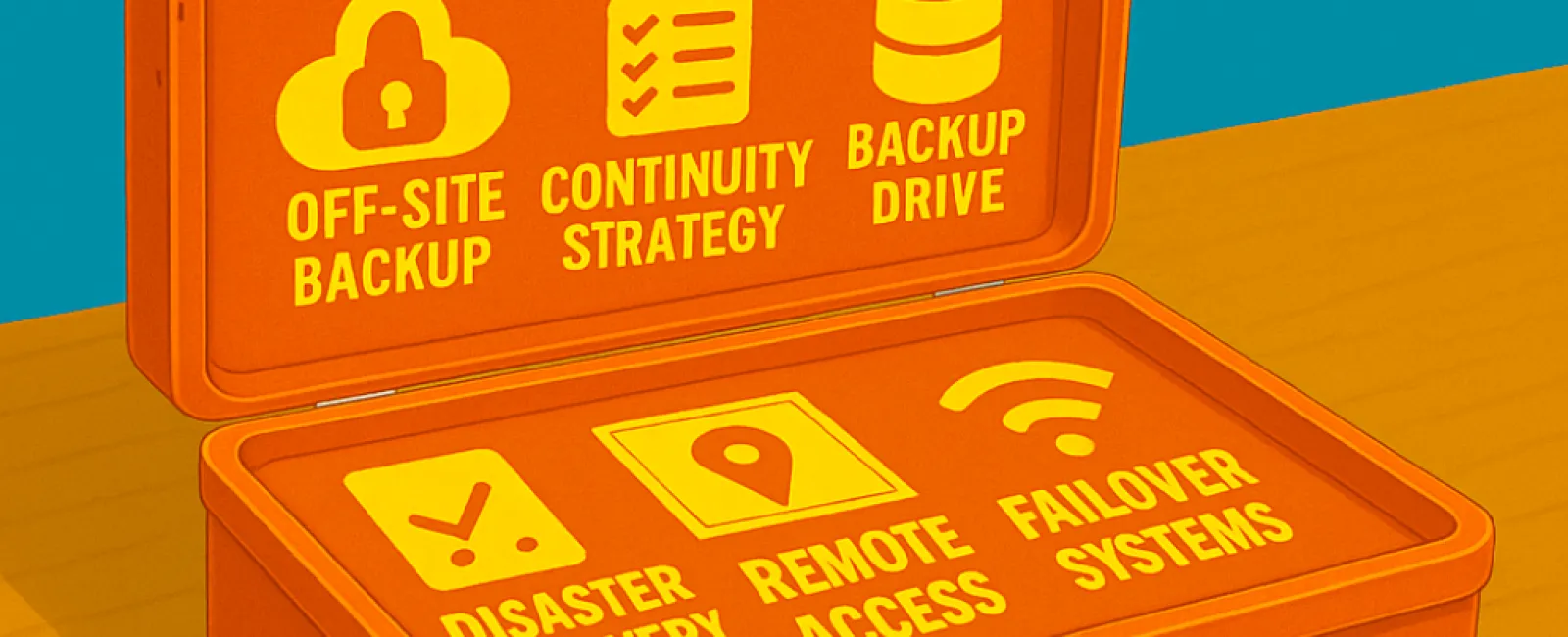July 28, 2025
Unexpected events like power failures, cyberattacks, hardware malfunctions, and natural disasters can strike without warning, wreaking havoc on small businesses. While many believe that simply having backups is sufficient, the reality is that restoring a single file doesn't guarantee your business stays operational. If your systems are inaccessible, remote work isn't supported, or communication with your team and clients breaks down, even brief interruptions can cause lasting damage. A dependable IT partner should equip you not only with backups but also with a comprehensive strategy designed to keep your business running smoothly through any crisis.
Backups Alone Won't Cut It - You Need a Robust Continuity Strategy
Backups are undeniably important, but they form just one piece of the puzzle. What truly safeguards your business is a business continuity plan — a forward-thinking approach that ensures your operations persist during and after disruptions.
When systems fail, data becomes unreachable, or your physical office is compromised, relying solely on local backup files offers little relief. Without a swift, well-defined recovery process, your business faces significant risks including lost revenue, damaged reputation, and regulatory non-compliance.
Understanding the Critical Difference: Backups vs. Business Continuity
Many businesses mistakenly believe backups are enough. Here's the reality:
● Backups restore your data.
● Continuity ensures your business keeps running no matter the challenge.
A solid continuity plan addresses essential questions such as:
● How quickly can we recover operations?
● Where will our team work if the office is unusable?
● Which systems are critical to our mission?
● Who is responsible for activating the recovery procedures?
Key components include:
● Encrypted, off-site, and immutable backups
● Prioritized recovery objectives (RTO/RPO)
● Preparedness for remote work
● Redundant systems and automatic failovers
● Regular disaster simulation drills
If your IT provider can't confidently guide you through these critical elements, you're not truly protected—you're just fortunate so far.
Could This Happen to Your Business?
This isn't fear-mongering; these are real incidents with serious consequences. Recent examples include:
● Florida hurricanes forced hundreds of businesses to halt operations, especially those lacking cloud access.
● North Carolina floods wiped out on-site servers, erasing vital records and invoices.
● California wildfires destroyed entire office buildings in Pacific Palisades, many without off-site recovery solutions.
Countless small businesses have also suffered from ransomware attacks, discovering too late that their backups were corrupted or untested.
Disasters don't discriminate by business size; they affect companies like yours every day.
Essential Questions to Ask Your IT Provider Today
If disaster struck tomorrow, would your business keep operating?
Make sure to ask:
● How quickly can we recover if ransomware attacks?
● Are backups regularly tested, and which systems do they cover?
● What's the recovery plan if a flood or fire disables our office?
● Is our continuity plan fully compliant with industry regulations?
● Can we continue serving clients if our team must work remotely?
If you aren't completely confident in these answers, your business may already be vulnerable.
Disasters Are Inevitable. Downtime Doesn't Have To Be.
You can't prevent every outage, storm, or cyberattack, but you can control how your business responds.
An effective IT provider helps you bounce back.
A superior IT partner ensures your business never misses a beat.
Curious about your current preparedness?
Click Here or call us at 630-895-8208 to schedule your FREE Consult and let's guarantee that a disaster never leads to downtime.





